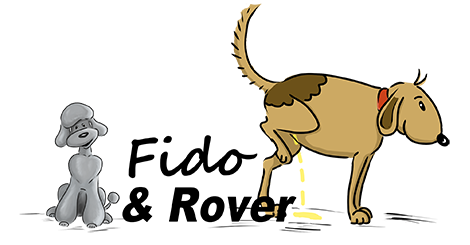Dog training has become big business.
40 years ago, training happened at home, at clubs you paid 50p to attend on a Saturday morning, or indeed, not at all.
Now there are seemingly a million and one dog trainers, dog psychologists, whisperers, behaviourists, behaviour consultants, and you can attend workshops, training clubs, training classes, seminars, full four day conferences, or have someone out to your home.
How do you know the person you are seeing is the right person for you and your dog, and how do you know they actually have the knowledge required, and the right ethics?
I’d like to say ‘oh that’s easy, just look for this or that qualification or professional organisation’… but it isn’t that simple.
The dog training and behaviour industry is wholly unregulated across the UK and the US, and in many other countries too (Germany actually have some requirements that you pass an assessment, famously, Cesar Milan of The Dog Whisperer, failed this assessment/exam and was unable to train during his live performances in Germany, but more on him later).
There are also some excellent trainers out there who do not hold a qualification at all, but they should still be a member of a reputable, ethical professional body.
So lets start to sort out what’s what.
Professional bodies – these are an organisation that has an interest in the field, it might be specifically training, or specifically behaviour or specifically dogs, or it might be a broader remit, covering all companion animals, training and behaviour, training, behaviour and other related jobs like pet sitting, dog walking, day care, grooming etc.
They should have a code of conduct for their members which includes a code of ethics – ie, what this organisation feels the members should, and should not do. What standards they should adhere to.
My own professional body requires that I ‘do no harm’, that I do not use aversive tools or methods to train or alter behaviour, that I behave professionally and a whole bunch of other sensible, ethical guidelines for how I treat people and animals, to ensure my clients get a good, professional service, and the animals I work with are happy and well both mentally and physically.
It is entirely possible someone without membership to a professional body could adhere to those same standards by themselves, but if you the client have worries or queries about something that practitioner did or suggested, and they have no professional body, where do you go for clarification or help?
Of course, all professional bodies are not equal, just as anyone can hang out their shingle as a dog trainer or walker or behaviourist, anyone can set up a professional body.
So in the first instance, ask about professional body membership, google that organisation, look at their website.
What are the joining requirements?
Do they require qualifications, self certification, evidence of prior experience and education, do they run assessments themselves or interview people, do they simply take an annual fee?
Do they require their members complete a certain amount of continued professional development (ie. More learning!) each year, and if so how do they check that is done?
Does this professional body offer qualifications itself? Are they a requirement of membership?
That leads us on to qualifications, and again this is a minefield.
A qualification should tell you that someone has the knowledge they need to do the job they are doing, but some qualifications are almost entirely theory, others are wholly practical, some are somewhere between the two, and some genuinely aren’t worth the paper they are written on.
Again google is your friend, search that qualification, and the awarding body.
If you cannot find any reference to that qualification outside the awarding body, if you cannot find the awarding body at all even… it’s pretty safe to suspect this qualification is meaningless.
So what should you do, on a practical level?
Ideally, whoever you hire to help you with your dog should have both theoretical knowledge, based in up to date science, and practical experience, and should have been assessed on both.
Their website should give you some information on their qualifications, where they got them from, what professional bodies they are a member of, and what continued professional development they do. Some do so much that listing it all would be silly, but some reference to some of it would be expected.
You should be able to find out from their website or social media, what methods they use and what education they have. If this is missing, be very wary indeed.
Some will say that they don’t explain their methods on their websites as they’d be giving away free advice… given there is nothing extraordinarily new or magical in dog training that hasn’t been freely available in books or online for donkeys years, this is a major red flag. I give away TONS of free info and advice daily, it has not damaged my business and I do not suffer from anyone ‘stealing my ideas’.
The next thing to do is just ask them – if they don’t want to answer, if they baffle you with BS, if they fudge it or give you info you later find you cannot follow up as it is incomplete, or it’s a dead end.. walk away.
Good, ethical, responsible, reputable professionals are happy to talk about their training, their studies and the qualifications or experience they have worked hard to gain.
Similarly, good, ethical professional bodies will tell you how much hard work and skill is required to join their organisation or pass their assessments and exams and earn their qualifications.
What about customer testimonials? Are they a good thing?
We must take them with a pinch of salt! Clients approach trainers or behaviourists because they lack the knowledge or experience to resolve the problem themselves.
They are therefore not in a good position to evaluate the skills of the trainer, they can only speak for results, which sounds ok but…!!
They are not in a good position to evaluate results either, because its possible to get quick fix results that last a few weeks or months, but eventually end up worsening behaviour.
At this point, most owners don’t know why things got worse, blame themselves and not the trainer who advised aversive or inefficient methods, and don’t come back to post that now their dog is far harder to live with than before (and if they do, the trainer in question is hardly likely to publish that!)
And of course, these days it is childs play to falsify testimonials, even on supposedly trustworthy ratings sites, it is known that some companies will ‘buy’ false positive feedback.
A better bet is to ask the trainer if they have former clients they can speak to – this still isn’t entirely fool proof but it’s harder to get folk to lie outright down the phone or in person than it is to invent a quote.
Once you have found a trainer or other professional who seems to be the real deal, and you have talked to them about their methods, their experience, their education – what do you do if they suggest something you don’t like, or are unprofessional in their behaviour or handling of your dog?
All the reputable qualification awarding bodies and professional membership bodies will have a complaints procedure.
Please PLEASE use it. They are not there to judge you and your dog and your training skills, they are there to ensure their members, the people carrying their qualifications, are doing a good job, and adhering to the codes of ethics and conduct they signed up to when they joined.
The ONLY person who can make a legitimate complaint about a trainer or behaviourist, is the client who hired them. If you relay to anyone other than the trainer/behaviourists professional body, the details of whatever it was that went wrong or was unprofessional or harmful to your dog, they are powerless to do anything, as information and evidence has to be provided first hand, direct from the client or witness.
Finally, some questions you can ask your trainer/behaviourist and what the answers should be.
1/ What happens if my dog gets it right?
The answer should be, your dog is rewarded with something he likes, such as food, play, access to some activity he enjoys.
2/ What happens if my dog gets it wrong?
My answer to this is that I will look at how I am attempting to train whatever it is I am training, evaluate my method and procedure, check whether I am actually asking too much, check if the environment is right and try again.
‘Nothing’ is also a good answer.
Run like hell if the answer is ‘he gets told off/punished/corrected’ etc.
3/Is the method or technique you are proposing to use the least invasive/least aversive option?
This ones trickier, the answer is in my case, yes, because I don’t use aversive tools or methods and I watch your dog carefully to ensure he does not find what I am doing aversive. However there are trainers using things like shock collars who would say yes even though that’s a lie. This is where you DO need to learn some training terminology and learning theory science – we will have a blog on that soon.
And really and truly finally – if you feel someone is doing something, or asking you to do something to your dog that would be scary, harmful, upsetting, painful, that your dog will not like, that you do not like or want to do…. Walk away. Say no, and leave, or ask them to leave your home.
That sounds really easy but in reality, many people have found it extremely difficult to do!




